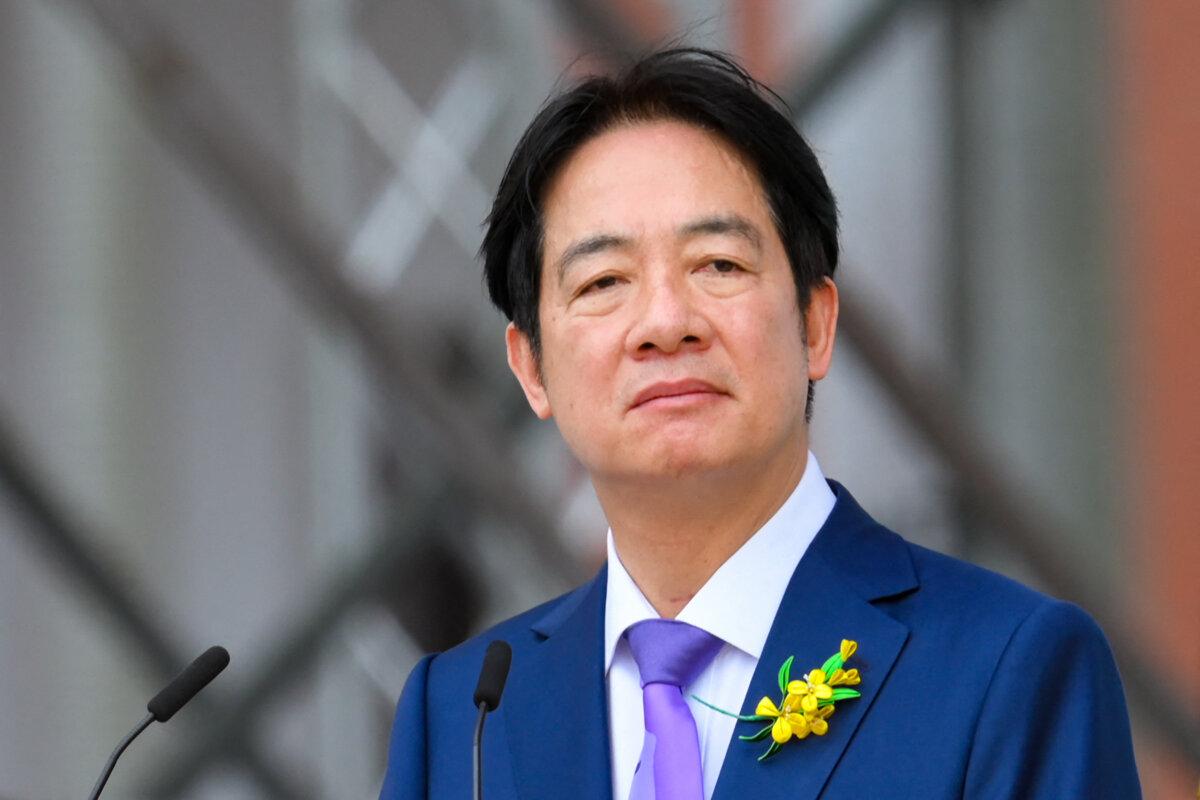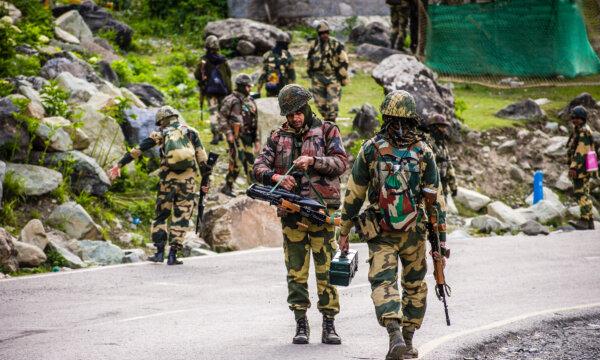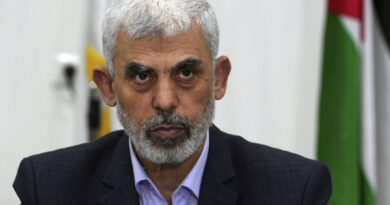Analysts Say Modi’s Approval for ‘Closer Ties’ With Taiwan Indicates India’s Shifting ‘Act East Policy’
A cordial exchange between the Indian prime minister and the new Taiwanese president sparked a strident protest from Beijing.
New Analysis
NEW DELHI—After being sworn in as India’s Prime Minister for a third consecutive time, Narendra Modi received congratulatory messages from a diverse array of world leaders around the globe.
However, one leader who stood out was Taiwan’s newly elected president, Lai Ching-te. In response to his message, Mr. Modi not only thanked President Lai but reciprocated with a message highlighting the strengthening ties between China’s two frontline adversaries.
Geopolitical analysts told The Epoch Times the exchange of messages between the two leaders shows that India’s Act East policy—an initiative to promote economic, strategic, and cultural relations within the Asia-Pacific—is shaping up and now encompasses Taiwan. The cordial exchange also highlights strategic concerns shared by the two countries, and their mutual dependence for economic growth.
“India’s Act East policy is taking shape, while its definition and scope of ‘Indo-Pacific’ is broadening. New Delhi used to be focused on East Africa and up to the Malacca Strait. However, over the last few years, it has engaged in port calls in Philippines, PNG [Papua New Guinea] and actively pursued relations with Taiwan, thus expanding from Malacca Strait to Taiwan strait,” said Akhil Ramesh, a geo-political analyst who leads the India program at the Honolulu-based Pacific Forum.
Taiwan is currently recognized as a sovereign nation by only 12 nations. While India has not officially recognized Taiwan, diplomatic relations between the two countries have been on the rise, particularly after 2020’s bloody Galwan conflict caused Indo–China relations to plunge. Taiwan’s exports to India saw an increase of 13 percent last year. As of February 2024, nearly 200 Taiwanese businesses have made investments in India.
Ming-Shih Shen, director of national security research at Taipei’s Institute for National Defense and Security Research, told The Epoch Times in an email that the interaction between President Lai and Mr. Modi on X is based on what they want from each other.
“Taiwan president Lai Ching-te needs the attention and support of the international community and hopes to cooperate with regional powers to deter China, because India can threaten China from the west, and Taiwan and India have a common geo-political interest, so there is more space for…

Modi and Lai’s Interaction
The interaction between Mr. Modi and President Lai occurred immediately after the election results were declared on June 4 and before Mr. Modi was formally sworn in on June 9.
The exchange between the two newly-elected leaders garnered considerable attention online. President Lai’s message has 2.5 million views to date, while Mr. Modi’s response has 2.7 million views. However, the exchange didn’t go over well in China.
At a regular press conference on June 6, Chinese foreign Ministry spokeswoman Mao Ning not only protested the interaction between Mr. Modi and Mr. Lai, but denied the existence of a Taiwanese president.
“First of all, there is no such thing as ‘president’ of the Taiwan region. As for your question, China opposes all forms of official interactions between the Taiwan authorities and countries having diplomatic relations with China. There is but one China in the world. Taiwan is an inalienable part of the territory of the People’s Republic of China,” Ms. Mao said in response to a question by a Bloomberg reporter.
Ms. Mao told reporters that China had already lodged a protest with India about Mr. Modi’s response to President Lai.
“The one-China principle is a universally recognized norm in international relations and a prevailing consensus in the international community. India has made serious political commitments on this and is supposed to recognize, be alarmed about and resist the Taiwan authorities’ political calculations. China has protested to India about this,” she said.

Toward a Shared Global Footprint
Experts say that a shared Chinese threat has actually drawn Taiwan and India together. The two countries have shared interests, and Mr. Modi’s response to President Lai gives a clear message that their relationship is governed by this. The Indian Prime Minister’s response also denotes India’s wish to graduate from a regional role to a larger role in the world.
“India is reaching higher and wants to play a larger role in global affairs. So far it has limited itself to [being] a regional player dealing with string of pearls and other challenges China poses. By stretching itself far and wide, to Taiwan in the East and East Africa in the West, or the more recent IMEC [India-Middle East-Europe Economic Corridor}, India wants to expand its global footprint,” said Mr. Ramesh.
By expanding that global footprint, India is aiming at “global leadership, power through increased trade and commercial activity,” he said.
Mr. Shen said that India does not necessarily need Taiwan in order to compete with China. However, Taiwan’s chip and semi-conductor technology has become a new cooperation sector between the two countries, one that can help India to promote its high tech and enhance its economy.
“Especially after Taiwan has begun to invest in India, in the future, if it wants to improve India’s semiconductor technology or artificial intelligence development, Taiwan is an indispensable partner,” he said.
During his second tenure, Mr. Modi’s government launched the country’s ambitious semiconductor mission with an outlay of $10 billion in 2021. It advanced toward the goal with the Indian cabinet’s approval early this year of three new plants, which are estimated to generate 20,000 advanced technology jobs and about 60,000 indirect jobs.
Mr. Shen predicted that Taiwan–India relations will continue to deepen and strengthen in the future.
“In addition to open economic, trade and scientific and technological exchanges, maybe more in security and defense industry cooperation will begin as the relationship between the two countries gradually deepens. India needs [to] strengthen its defense and aviation industry capabilities, and Taiwan needs the defense industry cooperation market,” he said.

The Taiwanese analyst doesn’t believe India will establish formal relations with Taiwan because it doesn’t want conflict with China. However, if it wants to strengthen its economy and develop enhanced comprehension of China’s military intelligence, it must look to Taiwan.
Mr. Shen said the main reason for China’s anger at the interaction between Mr. Modi and President Lai is fear.
“China is afraid that the relationship between Taiwan and India will deepen, so that the Sino–Indian border sovereignty issue and the conflict in the Taiwan Strait will be merged, and China’s enemies may form alliances and cooperation.”
That situation will be a “nightmare,” for communist party leader Xi Jinping, Mr. Shen said.





